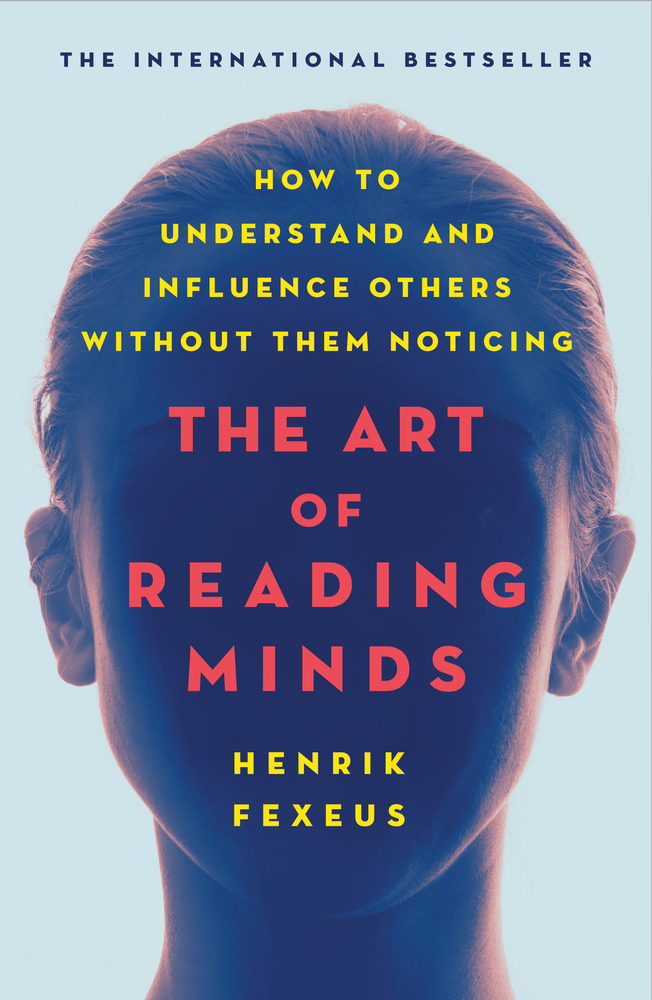The Art of Reading Minds with Henrik Fexeus
Henrik Fexeus, the author of The Art of Reading Minds: How to Understand and Influence Others Without Them Noticing, shares his techniques for developing social skills and using nonverbal communication.
Today’s episode is an interview with Henrik Fexeus, the author of The Art of Reading Minds: How to Understand and Influence Others Without Them Noticing. In it, Henrik shares some of the secrets of nonverbal communication and relationship-building.
Henrik is a geek. Having no social skills as a kid, he wondered how to improve his people skills. And he figured it out. Not only did he figure it out how to do it, he’s figured out how to teach it. Click the audio player above to listen to the interview and hear Henrik share what he’s learned. Here are a few quick insights from our chat.
Relationships and social interactions are everything. They say it’s not what you know, it’s who you know. Henrik agrees. When it comes to getting what you want in life, other people play a large part. Making and cultivating good relationships is one of the most important skills there is. If you don’t know how to do it, learn. That should be your top priority.
Making and cultivating good relationships is one of the most important skills there is.
Others’ realities aren’t the same as yours. When you’re in a relationship with someone—whether it’s your shmoopie, that nice policeman who wrote you a ticket for jaywalking, or the general of your zombie army—you need to learn what their reality is like in order to forge a closer relationship. For you, the latest sports scores may be the most important thing in your reality. For them, it’s the latest advance in quantum computing. Know their reality and you can meet them there.
Buy Now

Adapt to other people’s communication style. Not only is their reality important, but their communication style is important. Do they prefer in-person or electronic communication? Do they text? Do they post? Do they email? Do they call? Do they meet in person? If you want to build a relationship, you can’t count on them adapting to your style. You need to learn their style and adapt to them.
People like themselves. People also like you, to the extent that you remind them of themselves. That’s why, when we meet someone, we look for how we’re similar—we come from the same place, we have the same interests, and so on. So when you meet someone, get them to like you by finding ways in which you remind them of themselves.
But enough about me. Let’s talk about you. What do you think of me?
One easy way to do that is to adopt similar nonverbal behavior. You can mirror their body posture, use their gestures, and match the tempo of their voice. If you practice doing these things smoothly, they won’t notice it consciously. But unconsciously, you’ll remind them of them. And they like them. So they’ll like you. And with any luck, they’ll leave you the mansion in their will.
Test for rapport. Once you’ve found points of commonality and have a good rapport going, test it. You got into rapport by finding similarities, now introduce a difference. Change your body posture. Adjust your voice. Share a belief or idea that you haven’t been talking about until now.
If they follow you, it means you’ve got rapport. You’ve made a connection. You don’t have to point it out or comment on it. But you’ll know, through body, voice, or ideas, that you’re connecting to the point where you can form a real relationship.
Associate you with positivity. People connect their feelings to the people they interact with. If someone is having a good time around you, they’ll associate those good feelings with you.
So make an effort to get them in a good mood. Ask about fond memories. Emphasize the positive. And when it’s obvious they’re having good “feelz,” put yourself in their field of vision. Use a unique tone of voice. Do something they will associate with the feelings they’re having.
If someone is having a good time around you, they’ll associate those good feelings with you.
For the full interview with Henrik, tune in to the podcast above, where we go into all these topics in greater depth. And you never know—after listening, you just might be reading minds and forging connections like a pro.
JOIN THE PRODUCTIVITY CONVERSATION
Follow Get-It-Done Guy on Twitter and Facebook. If you want an accountability community to help you focus and make serious progress, check out GetItDoneGroups.com. If you’re an executive, entrepreneur, or sales professional and you want to boost your business results, talk to me about coaching. Learn more at SteverRobbins.com. Make sure you don’t miss an episode by subscribing on Apple, Spotify, or wherever you get your podcasts.






